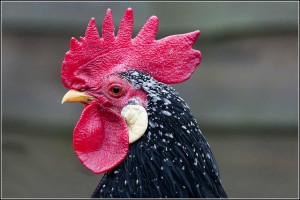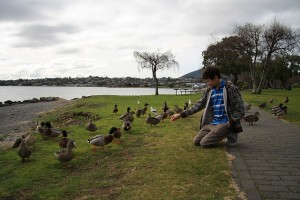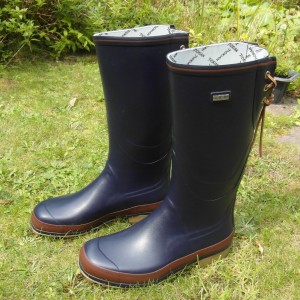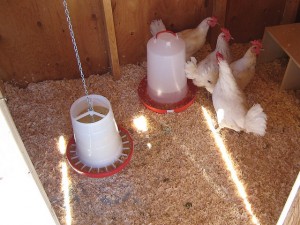Protect Your Backyard Chickens
go.ncsu.edu/readext?373615
en Español / em Português
El inglés es el idioma de control de esta página. En la medida en que haya algún conflicto entre la traducción al inglés y la traducción, el inglés prevalece.
Al hacer clic en el enlace de traducción se activa un servicio de traducción gratuito para convertir la página al español. Al igual que con cualquier traducción por Internet, la conversión no es sensible al contexto y puede que no traduzca el texto en su significado original. NC State Extension no garantiza la exactitud del texto traducido. Por favor, tenga en cuenta que algunas aplicaciones y/o servicios pueden no funcionar como se espera cuando se traducen.
Português
Inglês é o idioma de controle desta página. Na medida que haja algum conflito entre o texto original em Inglês e a tradução, o Inglês prevalece.
Ao clicar no link de tradução, um serviço gratuito de tradução será ativado para converter a página para o Português. Como em qualquer tradução pela internet, a conversão não é sensivel ao contexto e pode não ocorrer a tradução para o significado orginal. O serviço de Extensão da Carolina do Norte (NC State Extension) não garante a exatidão do texto traduzido. Por favor, observe que algumas funções ou serviços podem não funcionar como esperado após a tradução.
English
English is the controlling language of this page. To the extent there is any conflict between the English text and the translation, English controls.
Clicking on the translation link activates a free translation service to convert the page to Spanish. As with any Internet translation, the conversion is not context-sensitive and may not translate the text to its original meaning. NC State Extension does not guarantee the accuracy of the translated text. Please note that some applications and/or services may not function as expected when translated.
Collapse ▲Avian Influenza is a virus transmitted by migrating birds; here is some background information and tips for protecting your flock during the fall migration (September and October).
Protect your Flock by isolating your birds and anyone who interacts with your birds.
- Keep people, chickens, and other pets away from:
- Other flocks, birds can have the virus and pass it on for 5 days before they show any symptoms.
- Wild birds and surface water (ponds, lakes, wetlands) that wild birds frequent.
- Have a designated pair of boots that you wear to work with your birds; do not wear them anywhere else that they could pick up the virus (feed store, the pond, etc.)
- The virus can live for two days on a person and longer in the mud on boots and tires. Duck hunters and those who fish & boat avoid accidentally transporting.
- Exclude rodents that could spread the virus.
- Remove branches over the coop that could be roosting spots for wild birds.
- Do not share feeding, watering, or other equipment with other bird owners.
- Wash hands thoroughly before and after working with birds. Clean and disinfect equipment that comes in contact with birds and their droppings.
- Stay informed by registering your flock. The N.C. Department of Agriculture and Consumer Services requires all poultry owners, regardless of the number of birds, to register with NCFarmID. Registration form: Online, Printed. More information (scroll to the bottom for a message from state veterinarian Doug Meckes)
Watch for Symptoms
- Lack of energy and poor appetite
- Sneezing, gasping for air, coughing, and nasal discharge
- Watery, green diarrhea
- Reduction in egg laying or soft/misshapen eggs
- Swelling of the head, eyelids, and comb
- Purple discoloration of the wattles, combs, and legs
- Tremors, drooping wings, circling, twisting of the head and neck, or lack of movement
- Sudden death
Report: If you think one of your birds is exhibiting symptoms, call 919-733-7601.
- If the bird does not test positive for Avian Influenza, they may be able to tell you what is wrong and advise you on treating the bird.
- If the bird tests positive, that bird and the rest of your flock will be euthanized as quickly and humanely as possible. Remember, if one bird is positive, all of your birds have been exposed, and they are likely all hosts spreading the pathogen. The virus kills birds within 24 hrs of exhibiting symptoms, and they can exponentially grow and spread the virus while they suffer from the symptoms. In addition, the dead birds must be disposed of to prevent the spread of the virus.
- Each of us has the opportunity to protect all of us by acting quickly to minimize risk. “our state is facing exposure to the worst animal disease event in U.S. history this fall,” Doug Meckes, DVM, State Veterinarian. Thank you for taking measures to protect your pets and other birds nationwide.
Remember:
- This strain of avian Influenza has not been known to cause health problems for people.
- Our food supply is safe
- So far, no cases of Avian influenza have been identified in North Carolina
- The virus is easily killed with bleach, disinfectant spray, or heat







